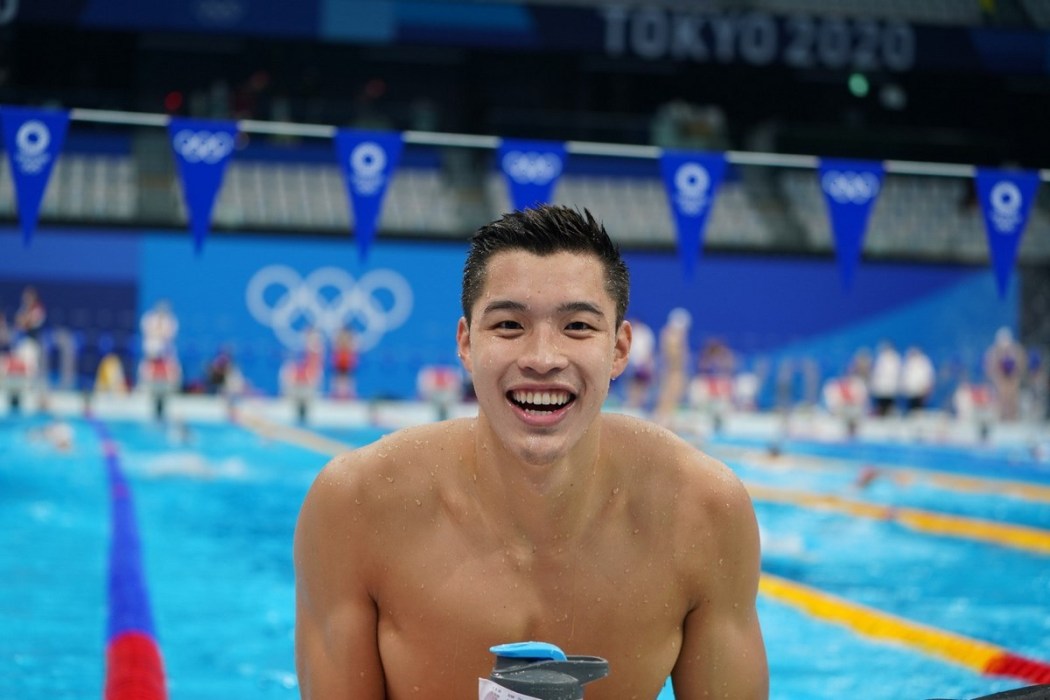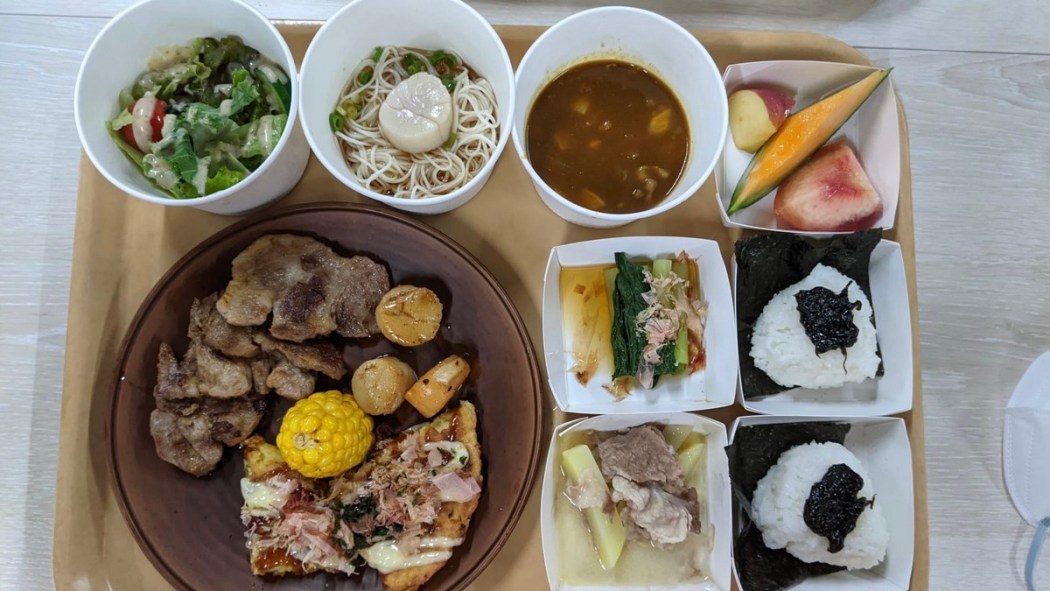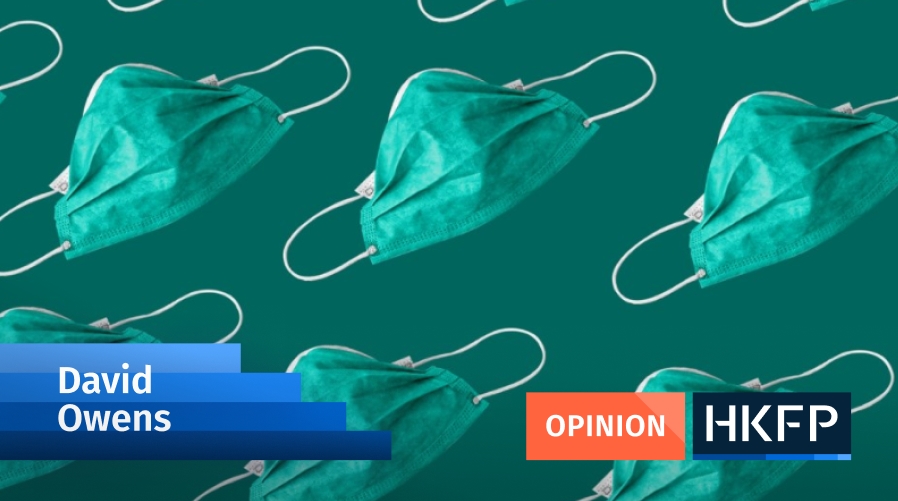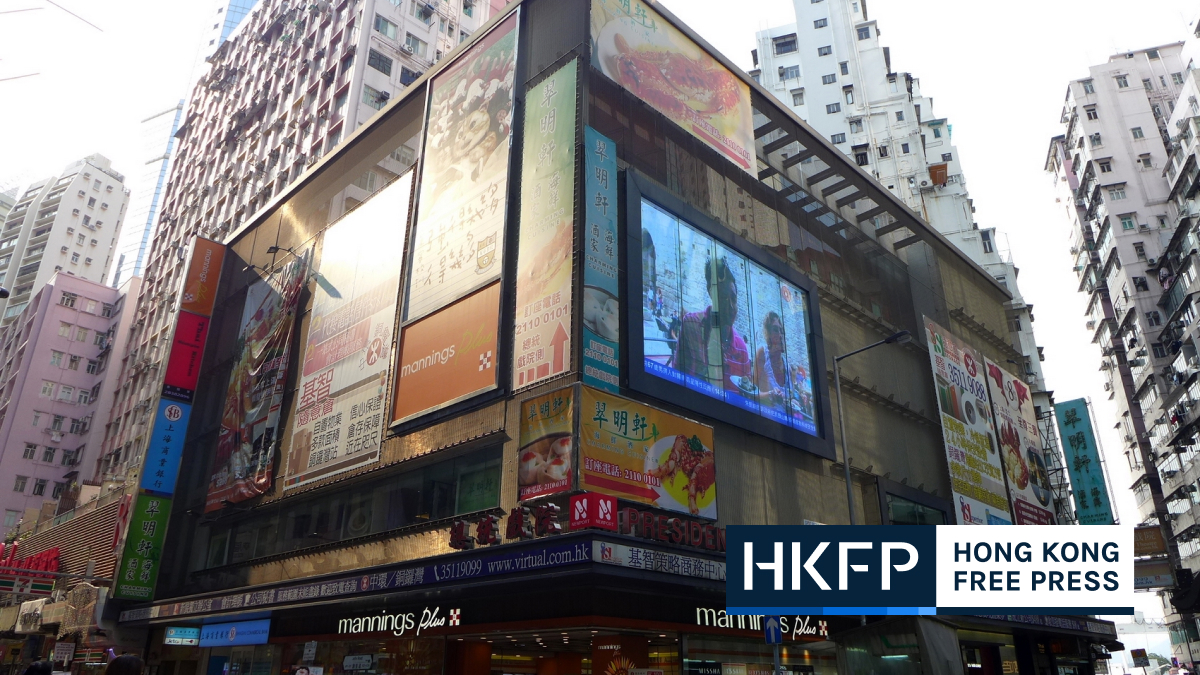After a year-long postponement and the constant fear of cancellation due to the Covid-19 pandemic, the Tokyo Olympic Games is finally underway after Japan hosted a spectacular – if slightly eerie – opening ceremony on Friday evening.

In line with a move by the International Olympic Committee to promote gender equality, like all other country teams taking part, Hong Kong fencer Edgar Cheung and badminton player Tse Ying-suet strode into the Olympic Stadium in the capital’s Shinjuku area together under the HKSAR flag.

The city has sent a total of 46 athletes to compete in 13 sporting events, including swimming, athletics, badminton, cycling, equestrian, fencing, golf, gymnastics, karate, rowing, sailing, table tennis and triathlon.
Men’s foilist Edgar Cheung, women’s epee fencer Coco Lin and swimmer Ian Ho told HKFP what life was like inside the Olympic Village in the Harumi waterfront district, which is home for the duration of the games for around 11,000 athletes from 206 countries and regions.
Covid-19 measures
In a phone interview, Lin, 26, told HKFP that she and her teammates were aware of the pandemic situation and as a result were not spending much time in crowded places. As of Friday afternoon, Japanese health authorities had recorded 106 coronavirus cases linked to the Olympics since the beginning of July.

Inside the village canteen, athletes were required to wear gloves before taking food, while seats at the table were separated by plastic panels. People wore masks around the village, the fencer said, and there were plenty of outdoor open spaces for them to avoid crowding.
“We can’t really see people’s faces, but I think everyone is trying to enjoy their time here. I see people having fun around the village,” she said.

At the gym room, 24-year-old Cheung, who ranks 19th internationally, said volunteers would disinfect all the equipment used. Athletes were also handed sanitisers to clean the fitness machines after use.
Meanwhile, Hong Kong’s sole male swimming representative Ho, said the pandemic has made it more difficult for him to connect with others due to social distancing measures. For instance, he said he did not stand as close to people when they were having a conversation.

“The atmosphere does remain the same in the pool, but I think in the village… people are a little bit less social. Still, they are being very friendly. All the Japanese staff are so nice,” he said.
Although there was no official ban, the three athletes said they would not set foot outside the village to minimise the risks, saying sightseeing was not as important as their competitions.

Hongkongers will be able to follow all the events closely because the Hong Kong government bought the rights to broadcast the Tokyo Olympics after commercial operators balked at screening it. The rights were licensed free of charge to five local television stations, except public broadcaster RTHK.
Japanese cuisine
Photos shared on social media by the Olympians reveal one thing for sure, the Hong Kong team will have no shortage of delicious food to sustain them as they compete. Lin that food served inside the two village cafeterias was “really good” and “fresh.”

“They have a lot of Japanese vegetables and fruits… they have peaches, scallops and udon,” the 26-year-old said and giggled.
Fellow Hong Kong fencer Cheung agreed, saying the quality of the food served in Tokyo was “very different” than what he ate during the games in Rio de Janeiro in 2016.
“Perhaps it is because I’m a fan of Japanese cuisine, the food quality here is really good,” he said.
Swimmer Ho, 24, added inside the casual dining hall – which mainly provided Japanese cuisine – the menu would be refreshed regularly to let athletes taste meals from different provinces in the island country.
Cardboard beds
Over the past week, a media storm has been whipped up over the cardboard beds that athletes will sleep in, after Twitter rumours claimed they were designed to prevent intimacy among the contestants as they could not hold the weight of two people.

But the “anti-sex” bed rumours were quickly debunked, as bedding company Airweave based in Japan told the press that the recyclable beds were made to be environmentally-friendly. Some Olympians – including Hong Kong fencer Cheung Siu-lun – were also seen giving their beds a “stress test” by jumping up and down, with the beds remaining intact.
The sustainable design was praised by local swimmer Ho, who said it made it more convenient for him to rearrange furniture inside his room. The mattress was even more impressive, he said, as users may adjust the firmness for “better spine alignment.”

“The Japanese are very thoughtful, everything has a thought behind it,” he said.
Competition goals
Two-time Olympian Cheung, who finished in the top 16 in the last Olympic Games, said he has set his heart on bringing home a medal this time, in both the individual and team events.
“We have proved that we are capable in international tournaments before, and not only once. I hope I can do my best and fulfil my goal,” he said.
The men’s foil team, which also featured fencers Ryan Choi, Cheung Siu-lun and Lawrence Ng, made history for the city by bagging a silver medal at the World Cup in St Petersburg, Russia in May 2019. They clinched a bronze medal last February at another World Cup in Cairo, Egypt.

Another fencer Lin will make her Olympic debut on Saturday morning, when she goes head to head against Singaporean fencer Kiria Tikanah Abdul Rahman to vie for a seat in the top 32. The women’s epee representative said she was rather nervous because it would be her first time competing against top overseas fencers in one and half years, but was also thrilled about stepping onto the Olympic fencing piste.
The fact that there would not be audiences also works in Lin’s favour, she said, as a fervent crowd could affect her performance.
“The main goal for myself is not to be scared and to enjoy and absorb the moment, and try do everything that I have been training for,” she said.
Like Lin, Ho said all he wanted to achieve at the Tokyo games was to beat his personal best in the 50 and 100 metres freestyle races. Asked if he felt extra pressure as the first male swimmer to qualify for the Olympics by making the A cut, the US-based Hongkonger said he was unfazed.
“I’m always just trying to do my best and give my all. I mean, who is going to fault you for trying your best?” he asked.
Support HKFP | Policies & Ethics | Error/typo? | Contact Us | Newsletter | Transparency & Annual Report | Apps
Help safeguard press freedom & keep HKFP free for all readers by supporting our team















